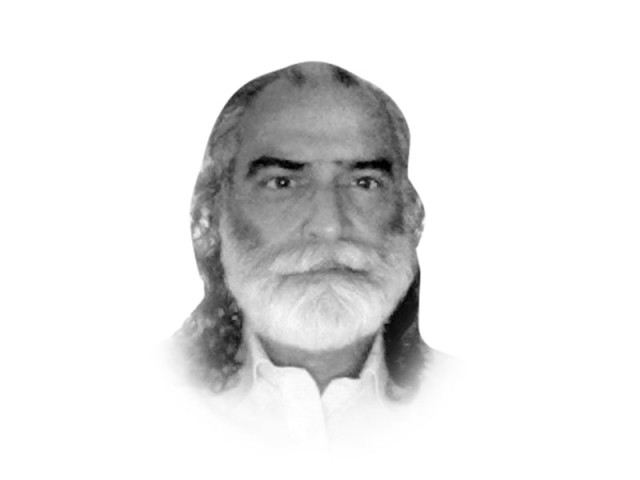Hold local elections in phases
The Free and Fair Election Network believes the phased method is the only way forward to overcome problems.

The writer is a social activist who heads the Pattan Development Organisation. The views expressed here are his own
Consider this first. In order to fulfil all the necessary procedures and minimum standards to hold credible elections, 45 days are required. Candidates and election authorities have about 30 days. Local council elections have always been more complex in nature and much larger in scale than the general elections. For instance, for general elections, a voter gets only two ballot papers, while in local elections, a voter would stamp five or six ballot papers. This means, printing of nearly 520 million ballot papers. For the general elections, only 180 million papers were printed. Also, it is worth noting that in the 2013 general election, 24,000 nomination papers were filed and 16,000 candidates contested the elections. In the local elections of 2005, about 225,000 candidates contested against 80,000 seats. Under the current local government laws, the number of union councils and wards has gone up. Thus, the number of seats has also been increased. No wonder, as many as 0.8 million and five million nomination papers are required in Sindh and Punjab alone, respectively.
As far as boundaries of wards or union councils and system of election of various categories of seats and their constituencies are concerned, the law is not very clear. Moreover, neither officials nor potential candidates/political parties have any clear understanding of the election system. The parliamentary parties in general and the ruling parties in particular, which had passed these laws, did not bother to prepare any educational material for the public and the ECP did not have the time to prepare any awareness material either. As a result, there is total confusion at all levels. This is leading to anger. I remember very vividly that NGOs had launched a massive awareness campaign in 2000-01 and then in 2005, when local council elections took place under a new system. Along with this, the government and the ECP, too, had launched an awareness campaign. Now, we don’t have any time.
About 300,000 personnel will be required to administer the polling. They would need intensive training. The nation can’t suffer from another bad election. Deployment of the polling staff and distribution of election material will also require state of the art arrangements and efficient supervision. Besides planning and preparedness for making the best arrangements, elections are basically the contestation between parties through campaigning. The parties must be provided enough time to reach out to voters. The available time is too little to have a meaningful campaign.
Time can be stretched in order to resolve the current impasse without compromising the quality of elections. According to local government laws, village, ward/union elections will take place first on the basis of adult franchise. This will be a gigantic undertaking, while holding of indirect elections of so-called higher councils will be a much smaller exercise. Therefore, elections of village and union councils should be held in phases. Keeping in view the time constraint and administrative bottlenecks, direct elections may be divided in four phases spread over two months. The schedule of all the phases should be announced in advance.
Since December 7 was an agreed upon date to hold elections, the first phase of elections must take place on this date. Because of the time constraint, the first phase of elections should cover about five to seven districts of each province. These districts should be smaller both geographically and population-wise. The remaining three phases could be held with a gap of 10 days each, easing pressure. This will also allow for deputing officials from those districts where elections will not be taking place.
This method was adopted successfully in 2000-01 and then in the 2005 local elections. Unlike 2001 and 2005, the forthcoming local election will be held on party basis, therefore, results of earlier phases of elections should not be declared until the last phase is completed as this may mean that there may be no level playing field.
Though the process of holding local elections has already started, it is still not too late to adopt the phased method, as reportedly, candidates have been facing lots of problems. For instance, Quetta experienced chaos when potential candidates faced problems in filing of nomination papers. As a result, authorities had to extend the date. A worse situation is feared in Punjab and Sindh, as contestation will be more intense here.
In my view, authorities should conduct a proper risk assessment of the situation in case elections take place simultaneously for all union councils of all provinces. The Free and Fair Election Network also believes that the phased method is the only way forward to overcome this brewing hazard. I would like to urge the ECP, the superior Court, political leadership and parliamentarians to consider this suggestion.
Published in The Express Tribune, November 21st, 2013.
Like Opinion & Editorial on Facebook, follow @ETOpEd on Twitter to receive all updates on all our daily pieces.
















COMMENTS
Comments are moderated and generally will be posted if they are on-topic and not abusive.
For more information, please see our Comments FAQ